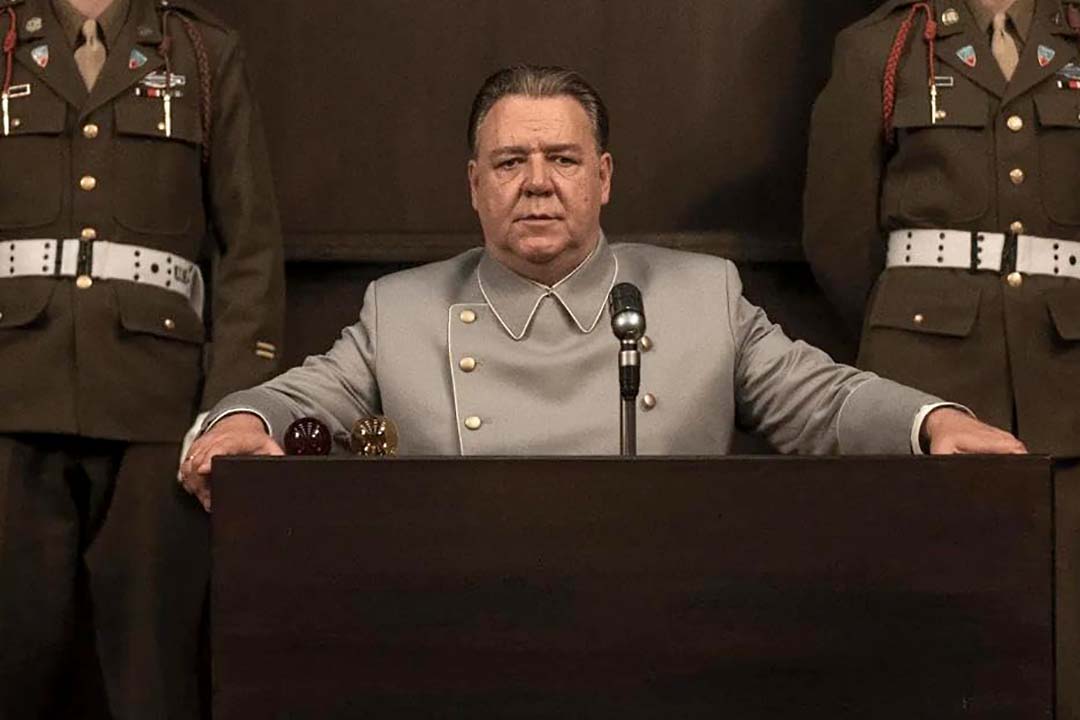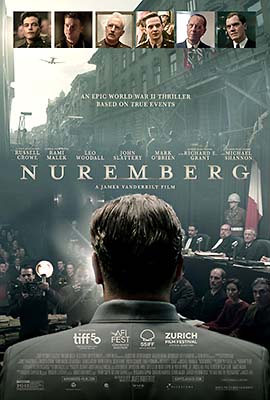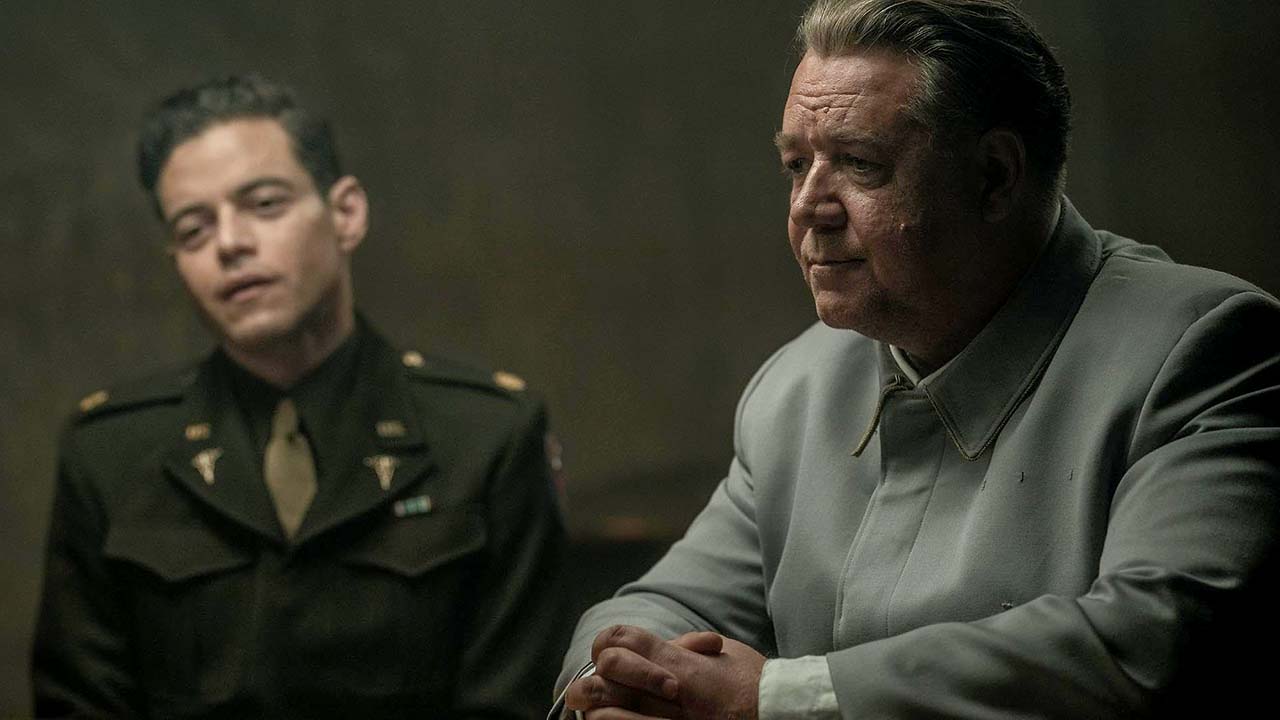On Screen: “Nuremberg”

Nuremberg
 The Oscar race has officially begun with James Vanderbilt’s “Nuremberg,” a powerful psychological thriller about the 1945 International Military Tribunal in Nuremberg’s Palace of Justice that indicted the Nazi high command for World War II crimes. It’s one of the year’s best films.
The Oscar race has officially begun with James Vanderbilt’s “Nuremberg,” a powerful psychological thriller about the 1945 International Military Tribunal in Nuremberg’s Palace of Justice that indicted the Nazi high command for World War II crimes. It’s one of the year’s best films.
Based on Jack El-Hai’s non-fiction book “The Nazi and the Psychiatrist” (2013), the plot explores the relationship between U.S. Army psychiatrist Douglas Kelley (Rami Malek) and Hitler’s crafty, charismatic second in command, Reichsmarschall Hermann Goring (Russell Crowe), commander of the Luftwaffe (German Air Force) and creator of the Gestapo (Nazi secret police).
While Kelley’s official mission is to ensure that the 21 Nazi prisoners are mentally fit to stand trial, his curiosity — and ambition — prompts him to delve far deeper. “If we could psychologically define evil, we could make sure something like this never happens again,” Kelley explains to his interpreter, Sgt. Howard Triest (Leo Woodhall), who spoke fluent German.
That places devious Kelley in an ethical dilemma. Should he honor his patients’ privacy or reveal his findings to the U.S. prosecutor, Supreme Court Justice Robert H. Jackson (Michael Shannon), and the British prosecutor, Sir David Maxwell-Fyfe (Richard E. Grant)?

For this tribunal, each of the four Allied nations supplied a team of prosecutors and a judge. To convict defendants, a majority of the four judges had to agree on a verdict and sentence. “If we just shoot these men, we make them martyrs,” notes Jackson. “I’m not going to let that happen.”
Tightly scripted and confidently directed by James Vanderbilt (“Zodiac”), the verbal sparring between Kelley and Goering is reminiscent of the manipulative maneuvering between Clarice Starling and Hannibal Lecter in “The Silence of the Lambs” — augmented by harrowing, horrifying concentration camp newsreel clips, graphically illustrating the atrocities that were committed.
Michael Shannon is remarkably restrained while Russell Crowe delivers an enthralling, intense portrayal that’s both coy and chilling. And squirrelly Rami Malik, still bearing an uncanny resemblance to Freddie Mercury in “Bohemian Rhapsody,” audaciously embodies Kelley’s conflicted motivations.
FYI: Previously, the most famous depiction of these trials was Stanley Kramer’s highly fictionalized “Judgment at Nuremberg” (1961).
On the Granger Gauge of 1 to 10, “Nuremberg” is a timely 10, playing in theaters.
 Susan Granger is a product of Hollywood. Her natural father, S. Sylvan Simon, was a director and producer at M.G.M. and Columbia Pictures. Her adoptive father, Armand Deutsch, produced movies at M.G.M.
Susan Granger is a product of Hollywood. Her natural father, S. Sylvan Simon, was a director and producer at M.G.M. and Columbia Pictures. Her adoptive father, Armand Deutsch, produced movies at M.G.M.
As a child, Susan appeared in movies with Abbott & Costello, Red Skelton, Lucille Ball, Margaret O’Brien, and Lassie. She attended Mills College in California, studying journalism with Pierre Salinger, and graduated from the University of Pennsylvania with highest honors in journalism.
